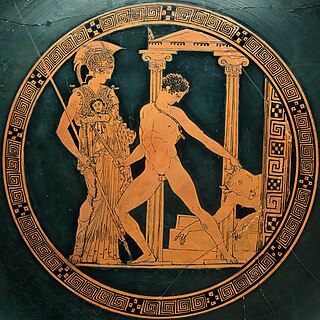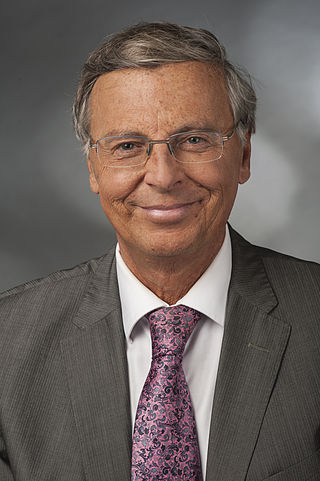
Greece, officially the Hellenic Republic, is a country in Southeast Europe. Located on the southern tip of the Balkan peninsula, Greece shares land borders with Albania to the northwest, North Macedonia and Bulgaria to the north, and Turkey to the east. The Aegean Sea lies to the east of the mainland, the Ionian Sea to the west, and the Sea of Crete and the Mediterranean Sea to the south. Greece has the longest coastline on the Mediterranean Basin, featuring thousands of islands. The country comprises nine traditional geographic regions, and has a population of over 10.4 million. Athens is the nation's capital and largest city, followed by Thessaloniki and Patras.

Macedonia, also called Macedon, was an ancient kingdom on the periphery of Archaic and Classical Greece, which later became the dominant state of Hellenistic Greece. The kingdom was founded and initially ruled by the royal Argead dynasty, which was followed by the Antipatrid and Antigonid dynasties. Home to the ancient Macedonians, the earliest kingdom was centered on the northeastern part of the Greek peninsula, and bordered by Epirus to the southwest, Illyria to the northwest, Paeonia to the north, Thrace to the east and Thessaly to the south.

Hellenism in a religious context refers to the modern pluralistic religion practiced in Greece and around the world by several communities derived from the beliefs, mythology, and rituals from antiquity through and up to today. It is a system of thought and spirituality with a shared culture and values, and common ritualistic, linguistic, and literary tradition. More broadly, Hellenism centers itself on the worship of Hellenic deities, namely the twelve Olympians.

Constantine II was the last King of Greece, reigning from 6 March 1964 until the abolition of the Greek monarchy on 1 June 1973.

The Greek War of Independence, also known as the Greek Revolution or the Greek Revolution of 1821, was a successful war of independence by Greek revolutionaries against the Ottoman Empire between 1821 and 1829. In 1826, the Greeks were assisted by the British Empire, Kingdom of France, and the Russian Empire, while the Ottomans were aided by their North African vassals. The war led to the formation of modern Greece, which would be expanded to its modern size in later years. The revolution is celebrated by Greeks around the world as independence day on 25 March.

In ancient Greek religion and mythology, the twelve Olympians are the major deities of the Greek pantheon, commonly considered to be Zeus, Poseidon, Hera, Demeter, Aphrodite, Athena, Artemis, Apollo, Ares, Hephaestus, Hermes, and either Hestia or Dionysus. They were called Olympians because, according to tradition, they resided on Mount Olympus.

Panathinaikos Football Club, known as Panathinaikos, or by its full name, and the name of its parent sports club, Panathinaikos A.O. or PAO, is a Greek professional football club based in Athens, Greece.

Filiki Eteria or Society of Friends was a secret political and revolutionary organization founded in 1814 in Odessa, whose purpose was to overthrow the Ottoman rule of Greece and establish an independent Greek State. Society members were mainly young Phanariot Greeks from Constantinople and the Russian Empire, local political and military leaders from the Greek mainland and islands, as well as several Orthodox Christian leaders from other nations that were under Hellenic influence, such as Karađorđe from Serbia, and Tudor Vladimirescu from Romania. One of its leaders was the prominent Phanariote Prince Alexander Ypsilantis. The Society initiated the Greek War of Independence in the spring of 1821.

The Popular Association – Golden Dawn, usually shortened to Golden Dawn, is a far-right neo-Nazi ultranationalist organisation and former political party in Greece. Golden Dawn rose to prominence during Greece's financial crisis of 2009, becoming the third most popular party in the Greek parliament in the January 2015 election. Its support since plunged, and it failed to enter parliament in the 2019 election. The criminal trial against the leaders, frequently described as the largest trial of Nazis since the Nuremberg trials, lasted more than five years.

The Greek junta or Regime of the Colonels was a right-wing military junta that ruled Greece from 1967 to 1974. On 21 April 1967, a group of colonels overthrew the caretaker government a month before scheduled elections which Georgios Papandreou's Centre Union was favoured to win.

Spiridon Trikoupis was a Greek statesman, diplomat, author and orator. He was the first Prime Minister of Greece (1833) and a member of provisional governments of Greece since 1826.

Panagiotis Kanellopoulos or Panayotis Kanellopoulos was a Greek writer, politician and Prime Minister of Greece. He was the Prime Minister of Greece deposed by the Greek military junta of 1967–1974.

The currently deposed Greek royal family was the ruling family of the Kingdom of Greece from 1863 to 1924 and again from 1935 to 1973. The family is a branch of the Danish royal family, itself a cadet branch of the House of Glücksburg. The family had replaced the House of Wittelsbach that previously ruled Greece from 1832 to 1862. The first monarch was George I of Greece, the second son of King Christian IX of Denmark. The current head of the family is Pavlos, who assumed the role on 10 January 2023 upon the death of his father, former King Constantine II.

Greek mythology is the body of myths originally told by the ancient Greeks, and a genre of ancient Greek folklore, today absorbed alongside Roman mythology into the broader designation of classical mythology. These stories concern the ancient Greek religion's view of the origin and nature of the world; the lives and activities of deities, heroes, and mythological creatures; and the origins and significance of the ancient Greeks' cult and ritual practices. Modern scholars study the myths to shed light on the religious and political institutions of ancient Greece, and to better understand the nature of myth-making itself.

Wolfgang Walter Wilhelm Bosbach is a German politician and member of the Christian Democratic Union (CDU), which he joined in 1972. A lawyer by profession, Bosbach is working at the law firm Winter Rechtsanwälte in Bergisch Gladbach.

Peter Ramsauer is a German politician of the Christian Social Union in Bavaria (CSU) who served as the Federal Minister of Transport, Building and Urban Development in the Second Merkel cabinet.

Christian Freiherr von Stetten is a Swiss-German businessman and politician of the Christian Democratic Union of Germany (CDU). He has served as Member of the Parliament of Germany, the Bundestag, since 2002. He represents the constituency of Schwäbisch Hall-Hohenlohe, and succeeded his father Wolfgang von Stetten as the Member of Parliament from that constituency.

Ioannis Georgiou "Yanis" Varoufakis is a Greek economist and politician. Since 2018, he has been Secretary-General of Democracy in Europe Movement 2025 (DiEM25), a left-wing pan-European political party he co-founded in 2016. Previously, he was a member of Syriza and was Greece's Minister of Finance between January 2015 and July 2015, negotiating on behalf of the Greek government during the 2009-2018 Greek government-debt crisis.
Achaea is a constituency of the Hellenic Parliament. It corresponds to Achaea Prefecture and elects eight members of parliament. The members of the prominent Papandreou politician family come from this constituency.
In North America, fraternities and sororities are social organizations at colleges and universities. They are sometimes collectively referred to as Greek life. Generally, membership in a fraternity or sorority is obtained as an undergraduate student but continues thereafter for life. Some accept graduate students as well. Individual fraternities and sororities vary in organization and purpose, but most share five common elements:
- Secrecy
- Single-sex membership
- Selection of new members based on a two-part vetting and probationary process known as rushing and pledging
- Ownership and occupancy of a residential property where undergraduate members live
- A set of complex identification symbols that may include Greek letters, armorial achievements, ciphers, badges, grips, hand signs, passwords, flowers, and colors















